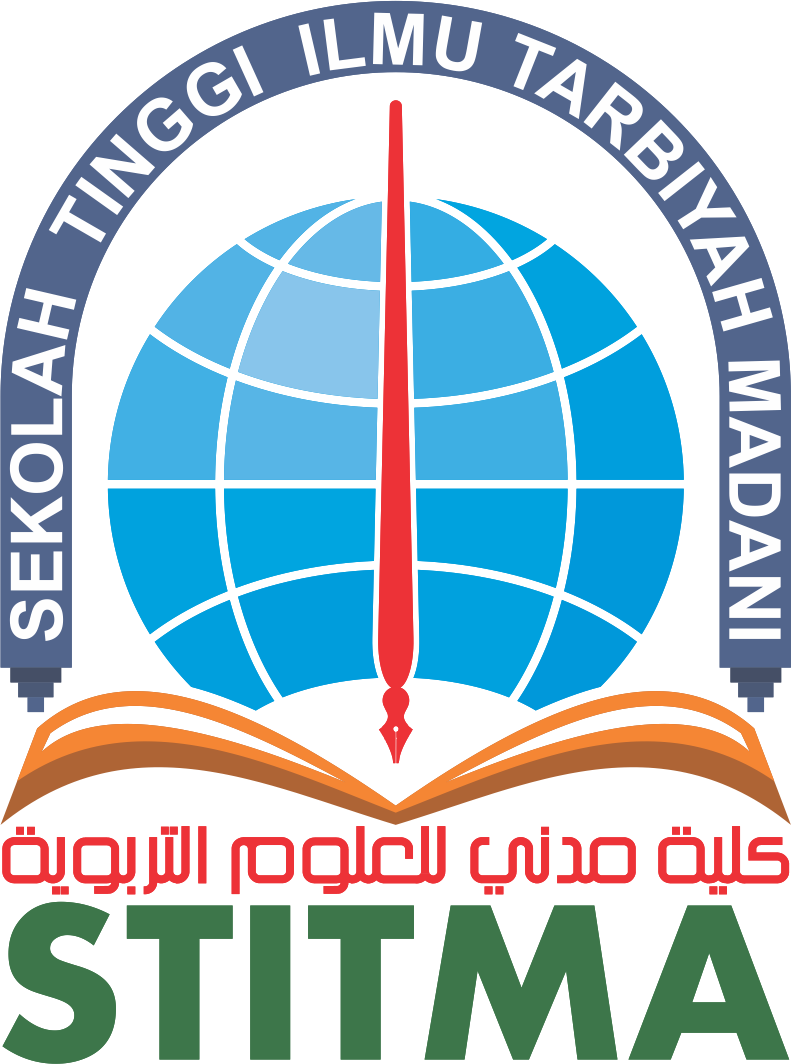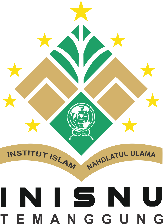Strengthening al-qur'an literacy through islamic education for students at sd ashabul kahfi pk sidoharjo
DOI:
https://doi.org/10.59944/amorti.v4i3.454Keywords:
Al-Qur’an literacy, Elementary school, Islamic EducationAbstract
This research examines the strengthening of Al-Qur’an literacy through Islamic Religious Education (PAI) learning at SD Ashabul Kahfi PK Sidoharjo. Al-Qur’an literacy in this context goes beyond the mechanical ability to read Arabic script; it also includes the comprehension of meaning, internalization of Qur’anic values, and their application in everyday life. Employing a qualitative approach with data collected through interviews, observation, and document analysis, the study reveals that Qur’anic literacy reinforcement is primarily implemented through the habituation of reading the Qur’an before daily learning activities. This program is designed to prepare students’ mental and spiritual readiness while embedding religious values into their daily routines, serving as a preventive measure against moral decline in the era of globalization. Key supporting factors in the implementation of the program include strong collaboration among school stakeholders—teachers, principals, and administrative staff—as well as active parental involvement. These elements contribute to a school environment that consistently promotes Qur’anic engagement and values-based education. However, a notable challenge remains: the lack of awareness among some students regarding the deeper significance of Qur’anic learning. This is reflected in the low intrinsic motivation and passive participation observed during Qur’an reading sessions. Despite this, the program has shown measurable effectiveness in enhancing students’ Qur’anic reading fluency and comprehension, while also positively contributing to their character formation. The educational approach adopted by the school is oriented toward Rabbani values those centered on spiritual consciousness and moral excellence. Through consistent Qur’an-based character education, students are encouraged to develop noble traits such as discipline, humility, patience, and emotional regulation. In conclusion, the Qur’anic literacy program at SD Ashabul Kahfi PK Sidoharjo presents a valuable model for integrating religious instruction with holistic character education, contributing meaningfully to the school’s broader mission of shaping spiritually resilient and morally upright individuals.
References
Anggito, A. , & S. J. (2018). Metodologi Kualitatif. CV Jejak. https://books.google.co.id/books/about/metodologi_penelitian_kualitatif.html?id=59V8DwAAQBAJ&printsec=frontcover&source=kp_read_button&redir_esc=y#v=onepage&q&f=false
Fathuloh, F., & Toyyib, T. (2024). Aktualisasi Gerakan Literasi Al-Qur’an pada Madrasah Aliyah Negeri: Peluang dan Tantangan. Indonesian Journal of Teaching and Learning (INTEL), 3(2), 91–99. https://doi.org/10.56855/intel.v3i2.422
Fitriani, F. (2022). Integrasi Nilai-Nilai Moderasi Beragama Persektif Al-Quran Melalui Penguatan Literasi Media. Al-Fikri: Jurnal Studi Dan Penelitian Pendidikan Islam, 4(2). https://doi.org/10.30659/jspi.v4i2.18988
Hasanah, U., & Sukri, M. (2023). Implementasi Literasi Digital Dalam Pendidikan Islam : Tantangan dan Solusi. Equilibrium: Jurnal Pendidikan, 11(2), 178. https://doi.org/10.26618/equilibrium.v11i2.10426
Hidayat, A. G., Haryati, T., & Rosdiana, R. (2021). Analisis Penerapan Program Literasi Al-Quran: Penguatan Karakter Religius Peserta Didik SDN Teke Palibelo Kab. Bima. JIIP - Jurnal Ilmiah Ilmu Pendidikan, 4(5), 318–330. https://doi.org/10.54371/jiip.v4i5.266
Husna Nashihin. (2023). Metode Penelitian (Kualitatif, Kuantitatif, Eksperimen, dan R&D) (1st ed.). PT. Global Eksekutif Teknologi.
Indra, I. M., & Cahyaningrum, I. (2019). Cara Mudah Memahami Metodologi penelitian. CV Budi Utama.
Ismaraidha, I., Harahap, M. Y., & Hannum, L. (2024). Pendidikan Karakter Religius Melalui Budaya Literasi Al-Qur’an Di Madrasah Aliyah Swasta Amaliyah Sunggal. Jurnal Keislaman, 7(2), 249–362. https://doi.org/10.54298/jk.v7i2.264
Kartika Sari Putri, M. (2023). Literasi Al-Qur’an di Sekolah : Program Akselerasi Peningkatan Kemampuan Siswa Membaca Al-Qur’an. Journal of Basic Educational Studies, 3(2), 588.
Nadhrioh, S. (2022). PENERAPAN LITERASI BERBASIS AL-QUR’AN DALAM MENINGKATKAN MOTIVASI BERAGAMA SISWA DI MADRASAH IBTIDAIAH. Andragogi : Jurnal Ilmiah Pendidikan Agama Islam, 4(2), 109–124. https://doi.org/10.33474/ja.v4i2.19297
Nurhidin, E. (2022). Peran Guru Pendidikan Agama Islam dalam Meningkatkan Kualitas Literasi Membaca Qur’an Siswa Sekolah Menengah Atas. Edudeena : Journal of Islamic Religious Education, 6(1), 1–11. https://doi.org/10.30762/ed.v6i1.136
Robbaniyah, Q., Primaningtyas, M., & Bayuny, A. F. R. (2024). Penguatan Literasi Al-Quran pada Mahasantri (studi kasus di pesantrean kampus Bin Baz). At Turots: Jurnal Pendidikan Islam, 199–209. https://doi.org/10.51468/jpi.v6i1.378
Solehuddin, S. (2018). Keefektifan Program Literasi Alquran Di Sekolah-Sekolah Swasta Non-Agama Dalam Kerangka Penguatan Karakter (Kajian Di Jawa Barat). Al-Bayan: Jurnal Studi Ilmu Al- Qur’an Dan Tafsir, 3(2), 170. https://doi.org/10.15575/al-bayan.v3i2.3790
Solehuddin, S. (2019). KEEFEKTIFAN PROGRAM LITERASI ALQURAN DI SEKOLAH-SEKOLAH SWASTA NON-AGAMA DALAM KERANGKA PENGUATAN KARAKTER (KAJIAN DI JAWA BARAT). Al-Bayan: Jurnal Studi Ilmu Al- Qur’an Dan Tafsir, 3(2). https://doi.org/10.15575/al-bayan.v3i2.3790
Supratama, R. (2024). The Influence of Parental Involvement on Academic Achievement: A Comparative Study Across Different Educational Systems. International Journal of Post Axial: Futuristic Teaching and Learning, 2(3).
Supratama, R., Hapsari, A. P., Ramadani, M. M., & Hidayat, R. (2023). Islam as a Science: Ontology, Epistemology and Ethics. Amorti: Jurnal Studi Islam Interdisipliner, 200–206. https://doi.org/10.59944/amorti.v2i4.227
Supratama, R., Saputra, M. S., & Nashihin, H. (2024). Implementasi Metode A BA TA TSA Dalam Pembelajaran Al Quran (Studi Kasus di Rumah Tahfizh Daarus Sunnah Sekayu Kabupaten Musi Banyiasin). Educativa: Jurnal Pendidikan Agama Islam, 1(2), 11–18.
Surawan, & Cindy Fatimah. (2021). Peran Guru PAI Mengatasi Kesulitan Siswa dalam Literasi Al- Qur’an. Ta’dibuna : Jurnal Pendidikan Agama Islam, vol.4(2), 111.
Tahir, M. S., Aswan, A., & Makbul, M. (2024). Optimalisasi Pembelajaran PAI Berbasis Literasi Digital di SD IT Plus Qurthuba Makassar. Wahana Karya Ilmiah Pendidikan, 8(01), 13. https://doi.org/10.35706/wkip.v8i01.11366
Wahyu Muh. Syata, Nur Fahmi Indriani, & Bellona Mardhatillah Sabillah. (2023a). Penguatan Literasi Al-Qur’an Peserta Didik Sebagai Peningkatan Minat Baca Al-Qur’an Peserta Didik di SD Negeri 69 Batu Tiroa Kabupaten Bantaeng. ABDI SAMULANG: Jurnal Pengabdian Kepada Masyarakat, 2(2), 119. https://doi.org/10.61477/abdisamulang.v2i2.25
Wahyu Muh. Syata, Nur Fahmi Indriani, & Bellona Mardhatillah Sabillah. (2023b). Penguatan Literasi Al-Qur’an Peserta Didik Sebagai Peningkatan Minat Baca Al-Qur’an Peserta Didik di SD Negeri 69 Batu Tiroa Kabupaten Bantaeng. ABDI SAMULANG: Jurnal Pengabdian Kepada Masyarakat, 2(2), 117–127. https://doi.org/10.61477/abdisamulang.v2i2.25





























